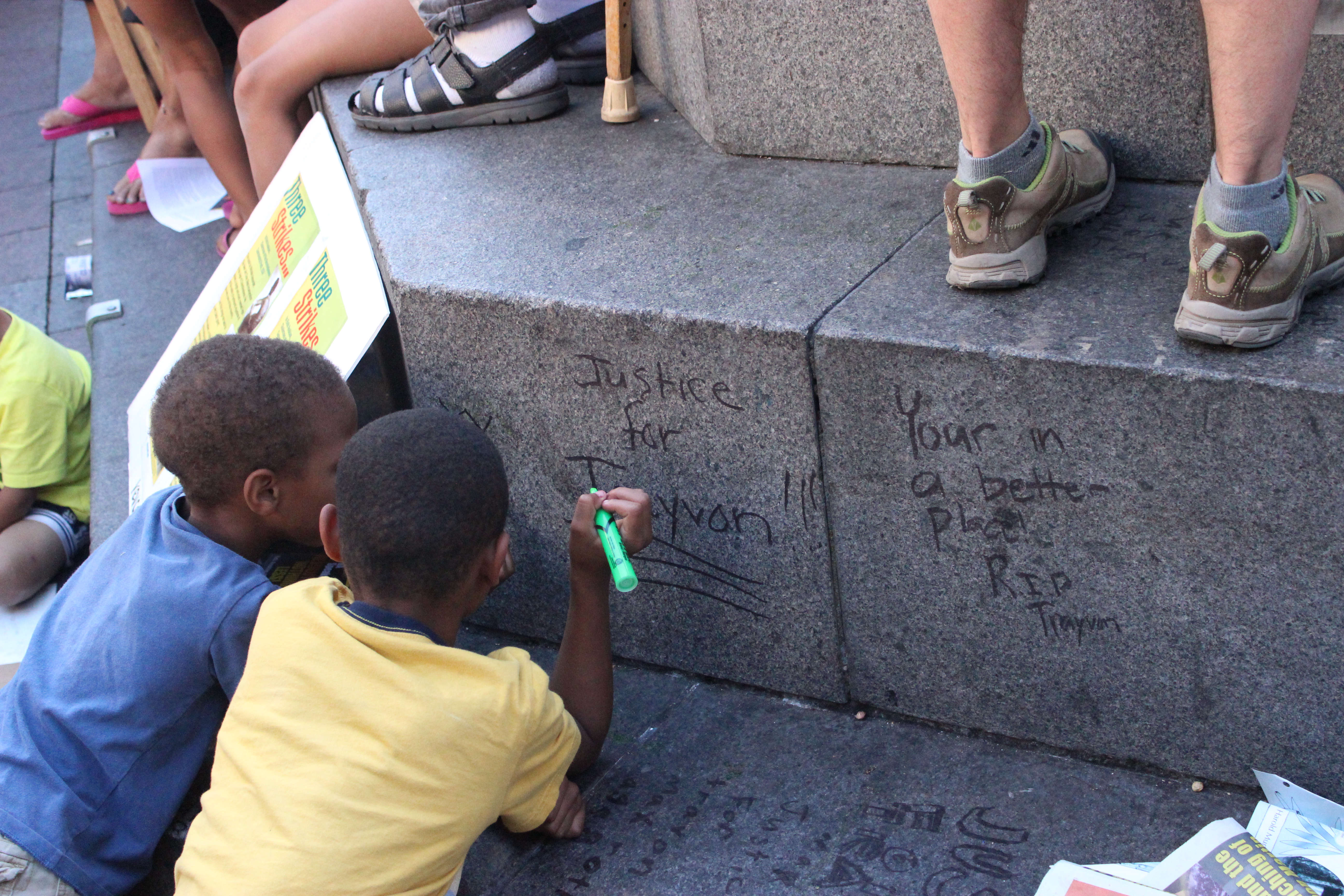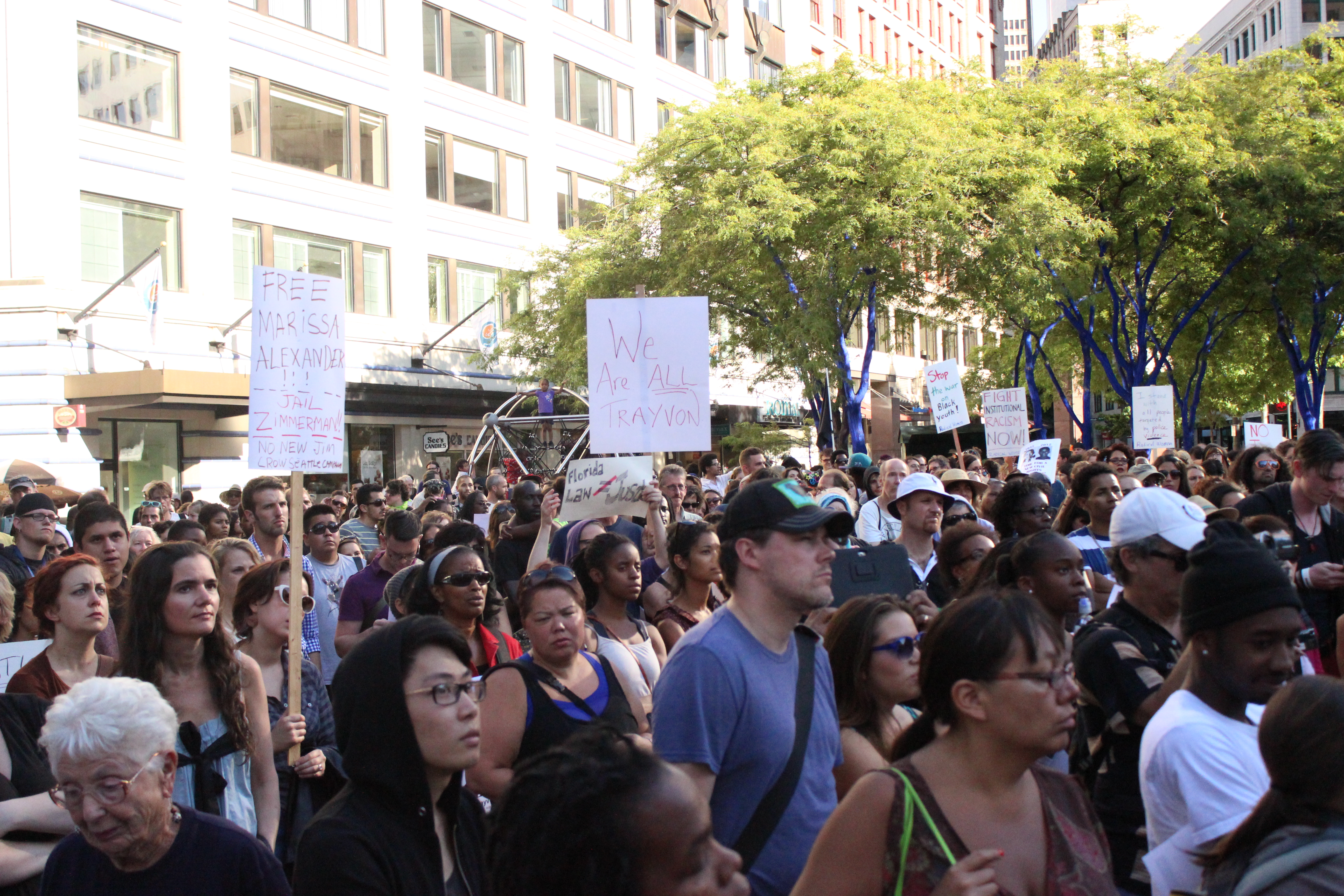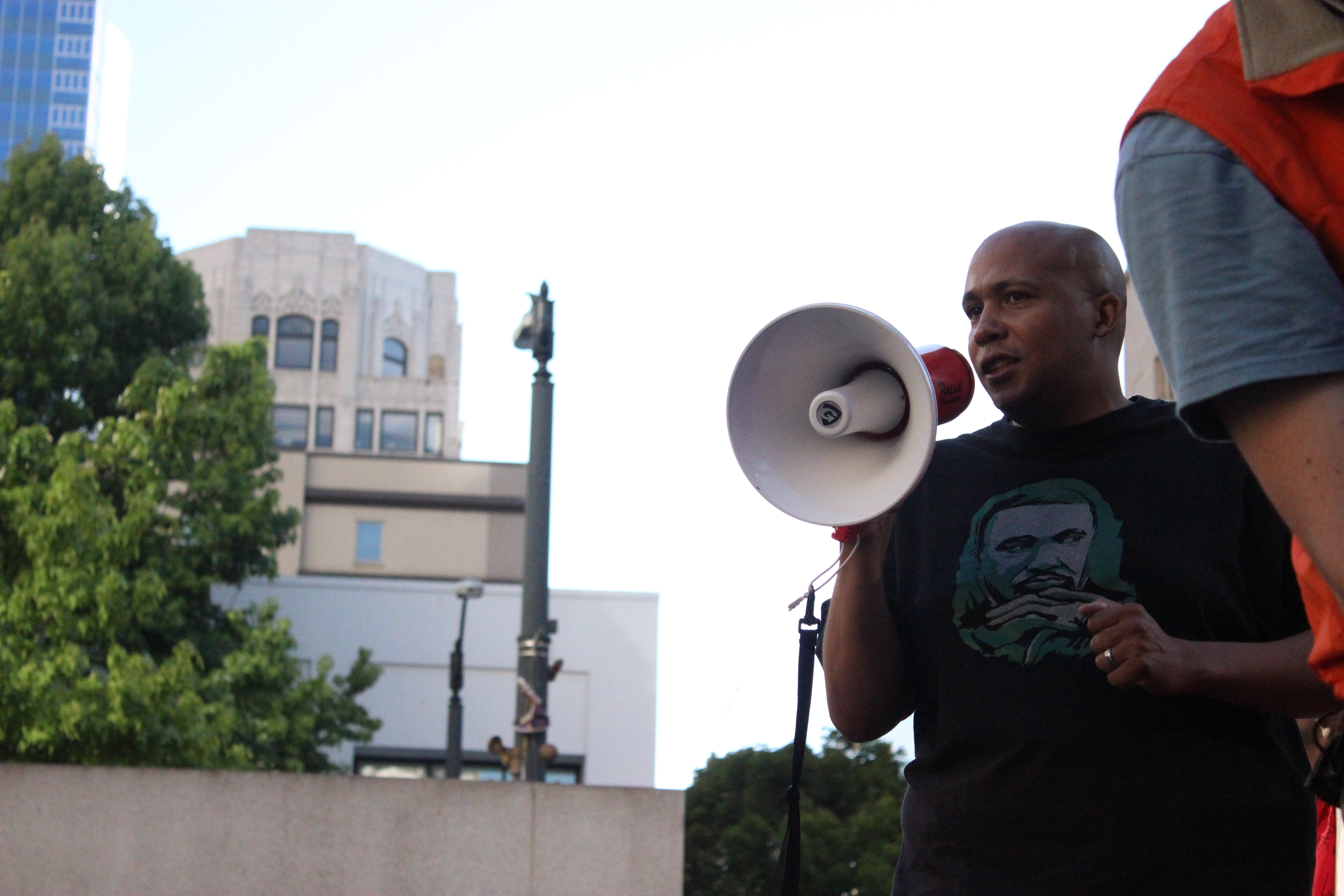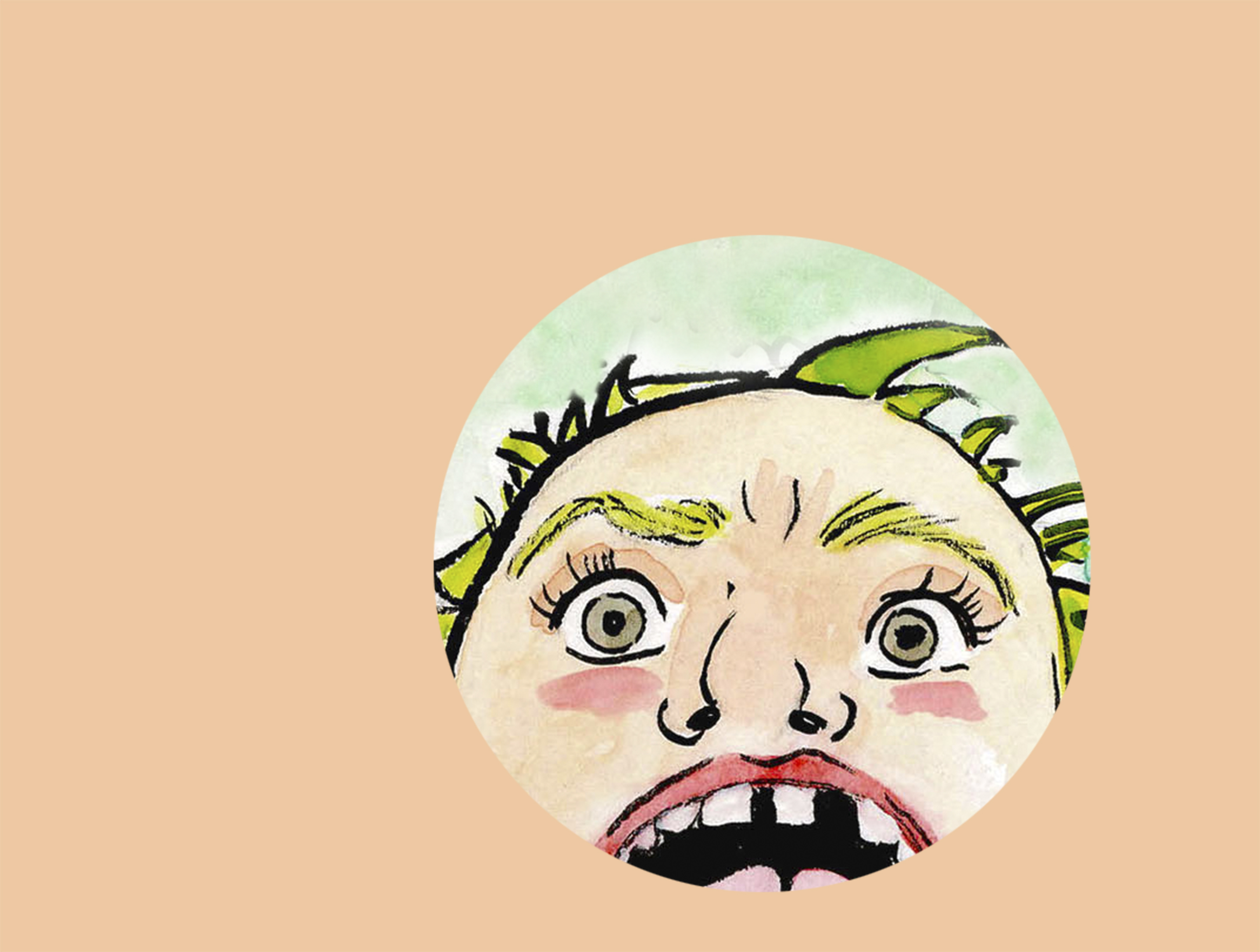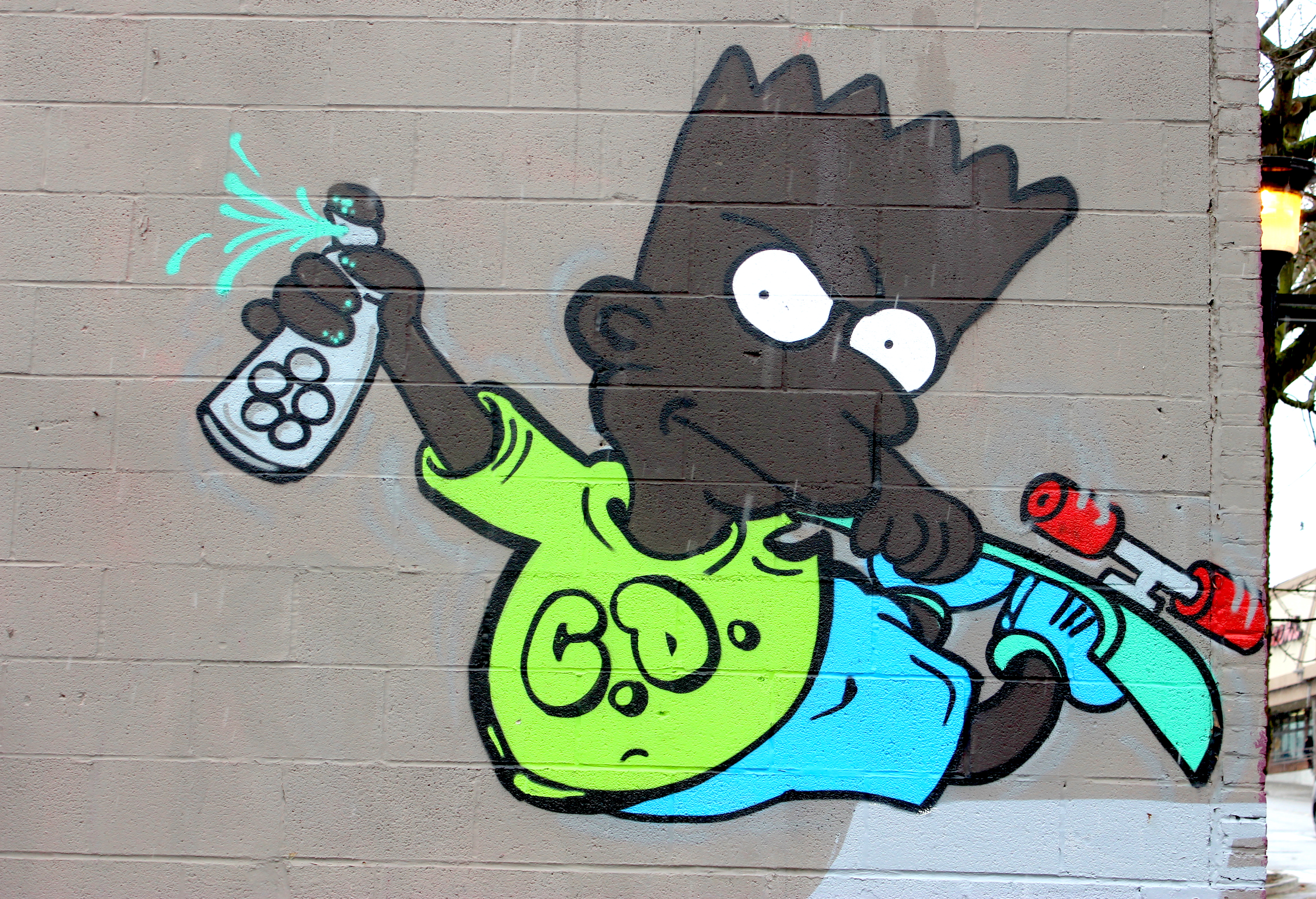A young boy in a Huskies t-shirt tugs at the sleeve of a stranger at the Trayvon Martin rally at Westlake Center. She can’t hear the boy saying “excuse me” over the megaphone powered speech a man is giving on-stage just to the left.
Finally, the boy catches the stranger’s attention.
“Can you time me?” the boy asks, seeing the stranger’s iPhone.
She hands him the phone, and he quickly maneuvers to the timer app, setting the dial for one minute.
As the clock begins ticking away, the boy hands the phone back, grabs a marker, and begins writing as fast as he can on the marbled ground:
TRAYVON – NO JUSTICE, NO PEACE, NO LOVE.
TRAYVON – NO JUSTICE, NO PEACE NO LOVE.
TRAYVON – NO JUS
The timer goes off.
The woman’s eyes glaze over a bit as she looks down at the phone.
“Time’s up,” she says.
“When I looked in the eyes of my two year old son,” the man onstage speaking in the megaphone says, “I thought, what do I tell him?”
As I look back down from the stage, the boy grabs a white piece of poster paper. He uncaps his marker and starts writing in big crooked letters:
DON’T KILL ME!
I’M 8!
I’M SCARED!
-Maxroth
I ask Maxroth if I can talk to him. He nods.
“How do you feel right now?” I ask.
Maxroth looks at me, flips over his poster, and wordlessly begins drawing a circle. He puts two big dots up top and an upside down curved line at the bottom.
A frowny face.
“You feel sad?”
He nods. “I feel scared.”
“Who told you about what happened today?” I ask him. I don’t see any of his parents around.
“I found out myself,” he says. “I saw it on TV. I’m scared.”
“Max!” his mother shouts, suddenly appearing out of the dense crowd. “Max, stop writing on the ground.”
As a particularly bedraggled protestor begins lecturing young Max on the proper way to write a picket sign for maximum visibility, I turn to his mother. “How is he feeling today?” I ask her.
“The same way we are all feeling,” she says. “Disbelief. I can’t believe this.”
“This is my Trayvon Martin,” Max’s mother says looking down at her son, who is in the process of tactfully avoiding the grubby protestor’s lecture.
“He saw the verdict on the news himself. He said ‘this is wrong. I’m scared. Zimmerman needs to go to jail. Why isn’t he in jail?’ I can’t believe we are still doing this. This is the kind of stuff I had to deal with when I was growing up in the 70s.”
Max’s mother begins telling me stories about being harassed growing up. White teenagers bullying her younger brothers for being black. How she would walk down the street being followed by people in cars who would shout at her, calling her racially charged names.
“I don’t want that for Max. I don’t want that for his future. Earlier he went up there on stage and grabbed the megaphone himself—he said ‘Justice for Trayvon Martin’ to the crowd.”
Max’s mother stops for a moment to look over at her son, who has joined a group of children all writing on the ground in marker.
“I don’t underestimate his intelligence,” she says. “He’s a brave boy.”
Watching all these black children huddled on the ground at Westalke, writing notes of protest, fear, and condolence is overwhelming.
A young girl in pink writes: Your in a better place. RIP Trayvon.
A boy in blue writes JUSTICE FOR TRAYVON as a boy in yellow underlines it three times.
Max’s mother turns to me. “They know something is wrong.”
